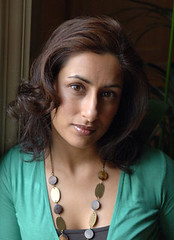Having spent a tremendous amount of time in discussions on diversity in the last few years, I cannot tell you how refreshing it is to hear at times also something different than the standard "let´s all just get along" rhetoric. Yesterday´s Diversity Show conference by the Dutch public broadcasters and the European Broadcasting Union was a fresh and bold attempt to get beyond the discussion about problems and cultures. Diversity Show looked at multiculturalism in a way that inspires people and offers us in culture and media fields much more solutions: how diversity on screen and in the workforce allows us to do our work better, find new subjects and make more interesting content.
I was most impressed by the approach, which the presenter Saira Khan and many others had chosen. They defined themselves on stage before the audience had a chance to make their assumptions. They made the statement I would love to hear more often: this is who I am, I am not asking for any special treatment and I have no problem talking about my background - but allow me to do it on my terms. Saira Khan coined the issue well referring to her experience in The Apprentice TV show:"When the rules are the same, you get surprising results."
Personally and professionally the conference was a great inspiration for me. It gave me more confidence that we are doing things right in StrangerFestival: we allow the young video makers to choose what they talk about and what matters to them. We are all experts in our own lives and equality allows us to co-exist and share and feel part of something bigger. This does not mean shying away from differences, it means recognition of everyone´s right to define themselves. Diversity for us in StrangerFestival means that we strive for getting as different voices as possible from a diverse youth population, i.e. giving opportunities for more people and getting better content. In this manner we take a deliberate stand away from projects where minorities are invited to explain how different they are.
Way too often diversity is tackled on the level of an individual and not on the level of the system. Diversity needs to come in to the game in the recruitment phase and when negotiating the shared rules, not only in individual job interviews. As the speaker from IBM said in the Diversity Show:"If I would ever feel that I am promoted because of my cultural background and not my performance, I would leave. But the fact that I know the number of women and minorities in executive positions at IBM, means that someone is keeping score."
And as the last praise for yesterday, the great thing the Dutch public broadcasters had done was making a conference on diversity fun, visually incredible and good entertainment. I have often wondered why people who are able to do great programmes, are not able to translate their skills into making great events. Diversity Show built on competences from television in terms of length and formats of speeches, use of visuals and interaction amongst people. As EBU´s Head of Television Björn Erichsen put it yesterday: Diversity Show has set a new standard for European media conferences.
Friday, November 07, 2008
Subscribe to:
Post Comments (Atom)













No comments:
Post a Comment